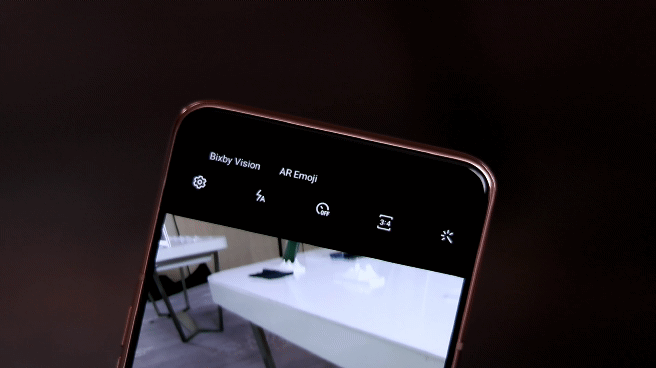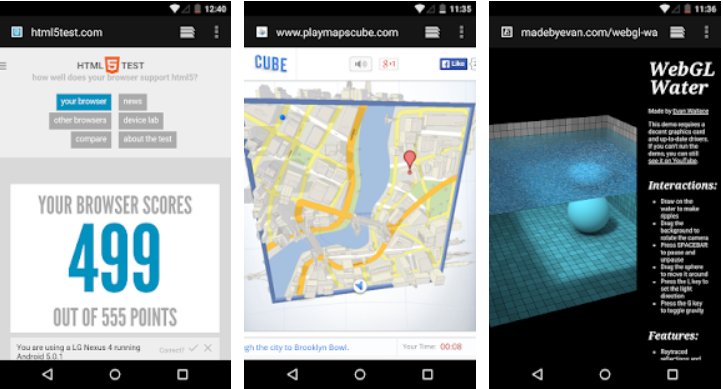Samsung is probably the online smartphone manufacturing company that did not opt for a notch in its smartphones for a long time. The closest that we got was a punch-hole camera in the S10 series. Despite the appearance of mini notches on previous A-series smartphones, Samsung is actively trying to find an alternative solution. Galaxy A80 is the first of its kind released by Samsung. There is no notch or an earpiece. The entire front of the phone is just the display panel. To achieve this, a rotating and sliding camera mechanism is implemented. This means that we get the same powerful camera setup for both back and front camera selfies.

Another noteworthy feature is the inclusion of Qualcomm’s Snapdragon 730 chip. It is the latest model in 7 series and a massive improvement over the previous generation. Read more about Snapdragon 730 here. This new chip is capable of high-end AI Computation on-device. Moreover, there is a significant improvement in the department of performance and improved battery efficiency.
Contents
Galaxy A80 First look
Here are some of the first-look photos of the Galaxy A80. We have to admit that this phone looks and feels much more premium compared to other units in the A-series (A30, A50, A70). Moreover, the sliding / rotating camera on A80 is something everyone is looking forward too. Even though it is not the first time that this kind of setup is implemented, we are interested to see the quality of implementation by Samsung itself.
Galaxy A80 Rotating Camera Setup in Action

At first glance, the rotating mechanism looks pretty smooth and fast. However, note that this camera setup is good only for taking photos. Unfortunately, it is not a good solution to use this setup for face unlock. Since it requires a camera to popup every time therefore, the unlock speed would be slow and the overall process is a bit tedious. Moreover, the motorized camera setup may end up consuming extra battery power if used to unlock the phone every time.

Here are the detailed specs of the Galaxy A80 Camera Setup:
- 48 MP, f/2.0, PDAF
- 8 MP, f/2.2, 12mm (ultrawide)
- TOF 3D camera
- LED flash
- HDR
- Video: 2160p@30fps, 1080p@30fps
The first two lenses are pretty much common knowledge these days. The main 48MP shooter comes with a normal viewing angle. However, the 8MP ultrawide lens can shoot at a 123-degree field of view. Lastly, the Time-of-Flight camera is there for real-time depth sensing. Its main advantage is to allow smooth and jitter-free video recording. You will get premium looking bokeh effect in both still photos and live videos.
Galaxy A80 Specs
| Galaxy A80 | |
| Display |
6.7-inch FHD+ (1080×2400) Super AMOLED |
| Processor |
Snapdragon 730 Octa-Core (2.2GHz 2 Cores + 1.8GHz 6 Cores) |
| GPU |
Adreno 618 |
| RAM | 8GB |
| Camera Setup |
Same camera setup for both back and front. Motorized rotating camera. |
| Storage | 128GB, no microSD slot |
| Software |
Android 9 Pie Samsung One UI |
| Battery |
3,700 mAh Support for Fast Charging with 25W Charger |
| Connectivity |
4G LTE Bluetooth 5.0 Wi-Fi a/b/g/n/ac USB Type-C Dual SIM standby |
| Dimensions | 165.2 x 76.5 x 9.3 mm |
| Other features |
Dolby Atmos (wired audio) No Headphone Jack Samsung Pay Bixby Voice Bixby Routines In-Display fingerprint sensor |
| Colors |
Angel Gold Ghost White Phantom Black |
Galaxy A80 Colors
At launch, Samsung announced A80 in 3 colors only. Normally, a phone of this caliber launches with more colors. However, we will have to wait and see if more color options come up in the future.

Galaxy A80 Price
According to Samsung officials, the price of Samsung Galaxy A80 is:
- 649 Euros
- 729 US Dollars (Converted)
- 50,457 Indian Rupee (Converted)
Conclusion
In a nutshell, Galaxy A80 is a modern experiment. The biggest concern for this phone is how the motorized camera will work over a long period of time. There is an obvious issue of dust collection. Therefore, only time will tell how successful or unsuccessful this rotating camera really is.
The main advantage of this camera setup is an edge-to-edge “Infinity Display”. We get a huge 6.7-inch screen in such a compact form factor. Moreover, there is no earpiece. Instead, it uses screen vibrational technology to produce sound. Some companies have introduced this tech already as well. However, none of those implementations were up to the mark. Once again, we have to wait and see how both the camera and no earpiece solution work out over long periods of time.
The price range for this smartphone is in the upper range of mid-tier. Therefore, anyone looking for a powerful smartphone in the budget definitely should consider this beast. The new Snapdragon 730 chipset accompanied with triple camera setup (especially ToF) promise to deliver stunning photos and videos.














